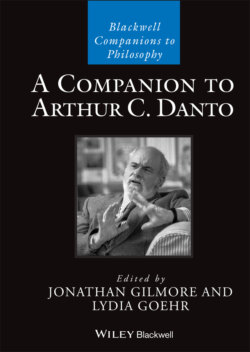Читать книгу A Companion to Arthur C. Danto - Группа авторов - Страница 32
Notes
Оглавление1 1 Thanks to Ed Casey, Dan Conway, Lydia Goehr and Jonathan Fine for comments.
2 2 All references to Nietzsche as Philosopher are to the “Expanded Edition.”
3 3 All references to the text of Analytical Philosophy of History are to the 2007 edition of Narration and Knowledge, which was originally published in 1985, and which includes the integral text of Analytical Philosophy of History.
4 4 Danto’s effort to separate the philosophical analysis of Nietzsche’s writings from both author psychology and the study of the effects of those writings strongly echoes Monroe C. Beardsley’s and William K. Wimsatt’s famous effort to separate the critical analysis of poems from both author psychology and the study of a poem’s effects. See, in this connection, Beardsley’s and Wimsatt’s criticisms of the intentional and affective fallacies in Wimsatt 1954.
5 5 In at least one place, Danto himself follows an Ariadne’s thread out of the labyrinth he otherwise constructs around Nietzsche’s writing, and that is when he reads Nietzsche not as a philosopher but as a therapist. There is an irony about this reading, however, for the Nietzsche who emerges is not a Minotaur-like monster, but a thinker who, like the philosopher, Danto, would turn his readers away from the temptations of prophecy and substantive philosophy of history (see Danto 2005, 251–67).
